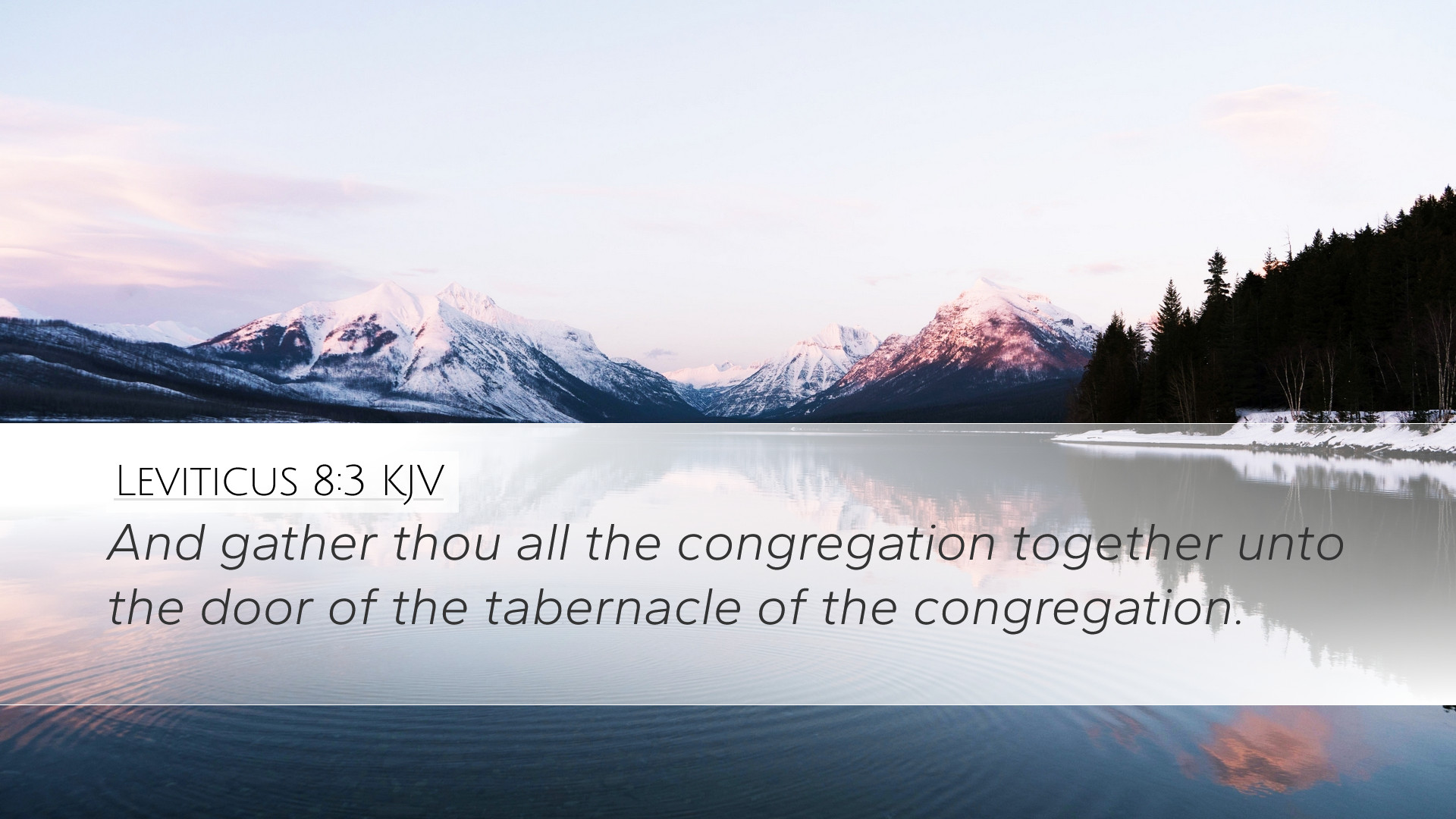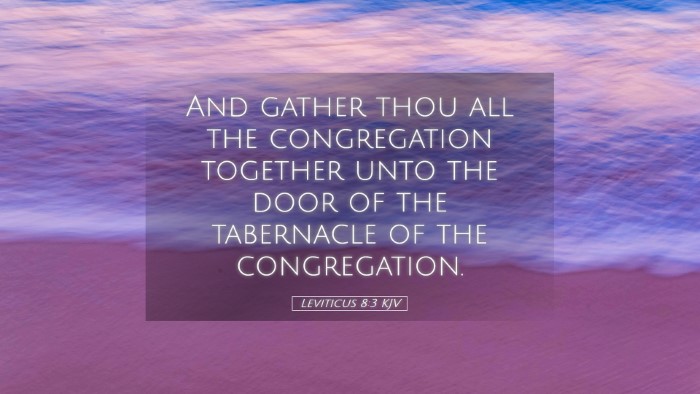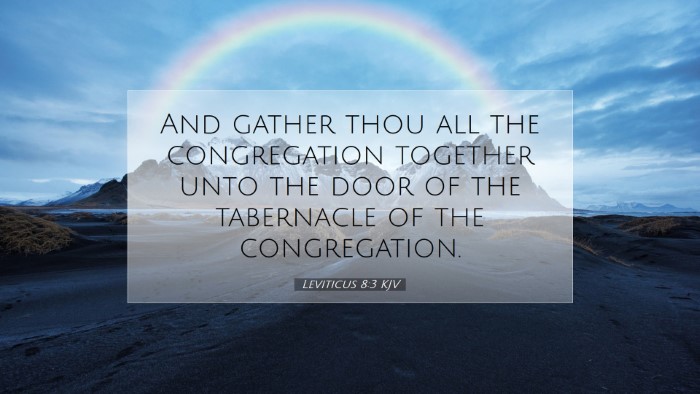Commentary on Leviticus 8:3
Leviticus 8:3 states: "And gather thou all the congregation together unto the door of the tabernacle of the congregation."
This verse marks a significant moment in the ritual of the consecration of Aaron and his sons as priests. In the context of this chapter, the direction given to Moses reflects the importance of communal participation in sacred rites, establishing a pattern of worship that is both communal and divinely ordained.
Interpretative Insights
Various commentators provide valuable insights into this verse, recognizing its implications for understanding priestly ordination and communal worship.
Matthew Henry's Commentary
Matthew Henry emphasizes the significance of gathering the congregation. He remarks that this act illustrates the collective nature of worship within Israel.
He notes:
"It was to show that the whole congregation had an interest in the solemnity of the consecration, as the priests were to minister for them."
The inclusion of the entire congregation signifies that the actions of the priests directly affect the whole community. This gathering emphasizes communal acceptance of the priestly office, which is a reminder of the community’s role in the worship of God.
Albert Barnes' Notes
Albert Barnes provides a detailed discussion on the assembly at the tabernacle's door. He states that the "door of the tabernacle" serves as a mediator between God and His people.
"The door signifies access to God," Barnes writes, establishing the tabernacle as the locus of divine engagement where God's presence is made known.
Moreover, he highlights:
- Community Responsibility: Every individual within Israel was accountable in some way for the conduct of the priests.
- Divine Order: The proper consecration of the priests was vital for the nation’s spiritual and social order.
Thus, from Barnes' perspective, this assembly was crucial not just for the priests but for the entire community of Israel, underscoring the concept of public worship.
Adam Clarke's Commentary
Adam Clarke takes a slightly different approach by focusing on the symbolism present in the gathering. He notes that the act of gathering before the tabernacle signifies unity in purpose and prepares the hearts of the people to receive God’s instructions.
Clarke comments:
"This signifies the collection of the people for a common cause, which is to dedicate themselves to God alongside their appointed leaders."
He also emphasizes the importance of participatory worship as pivotal for spiritual experiences within the Israelite community, suggesting that true worship requires the involvement of both the leaders (the priests) and the congregation.
Theological Implications
Understanding Leviticus 8:3 in its broader context provides several theological implications regarding holiness, worship, and community responsibilities:
-
Concept of Holiness: The act of gathering indicates the reverence required when approaching the sacred. Holiness is a community experience, as all are called to partake and recognize the sanctifying presence of God.
-
Priestly Mediation: The priests serve as intermediaries; their consecration is not merely a personal matter but a communal endeavor where their role involves the entire community's spiritual well-being.
-
Public Worship and Accountability: This communal gathering stresses that worship is not just individual but collective in nature. It reinforces the idea that the corporate body is responsible for maintaining a relationship with God through proper worship practices.
-
Preparation for Service: The gathering serves as a preparatory step towards acknowledgment of the roles that leaders will play. This underscores a biblically rooted understanding that leadership exists for the community's welfare, guiding them in God’s ordinances.
Conclusion
Leviticus 8:3, therefore, is a rich text through which we explore themes of community, holiness, and worship. It invites pastors, students, theologians, and scholars to engage with the text not merely for historical context but to derive timeless principles that apply to contemporary worship and ecclesiastical leadership.
As a reminder of both individual and collective responsibility before God, Leviticus 8:3 speaks profoundly to the nature of worship as a communal endeavor that affects the whole body of believers.


